-
About
About our School
At Mount Michael the core of the academic program enables students to become inquiring learners, appreciative of their heritage, responsive and committed to the challenges of the future.
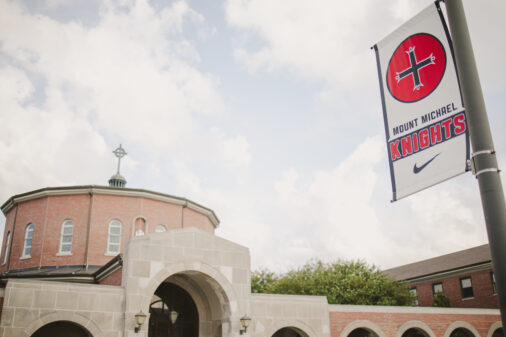
-
Admissions
Admissions
Mount Michael Benedictine School admits students of any race, color, national and ethnic origins to all the rights, privileges, programs and activities generally accorded or made available to the students.
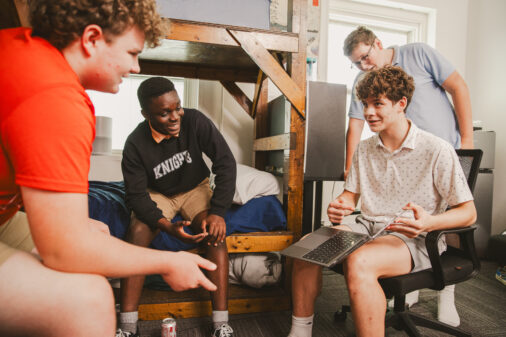
-
Academics
Academics
Ultimately, it is our goal to enable every student to reach his educational and career potential.

-
Counseling
Counseling
The Mount Michael Benedictine School Counseling program is a comprehensive counseling program dedicated to nurturing our students, families, and community.
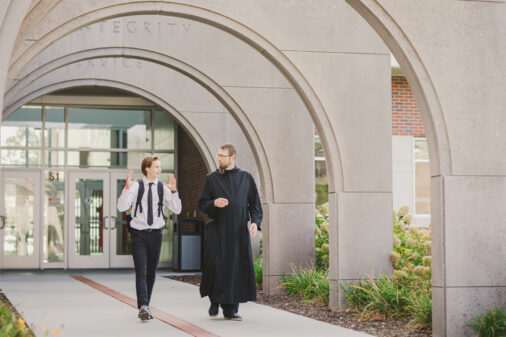
-
Spirituality
Spirituality
Benedictine values encompass a broad range of concepts that are central to life within a Christian community. It is quite possible to literally perceive dozens of values that can be deemed as Benedictine in nature. This a testimony to the breadth of “The Rule” and communal life established by Saint Benedict.
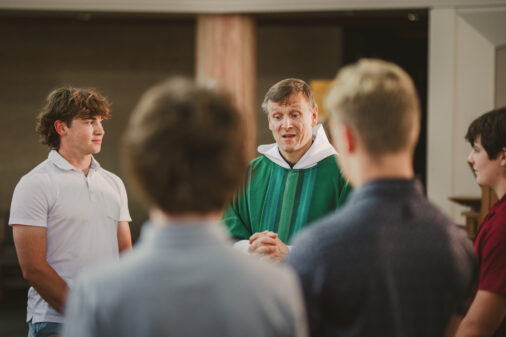
-
Activities
Activities
There are many opportunities for students to get involved at Mount Michael. Some are competitive, some are participatory. In either case it is all part of getting a well rounded educational experience.

-
Athletics
Athletics
There are many opportunities for students at Mount Michael to participate in our top of the line athletic programs. Go Knights!
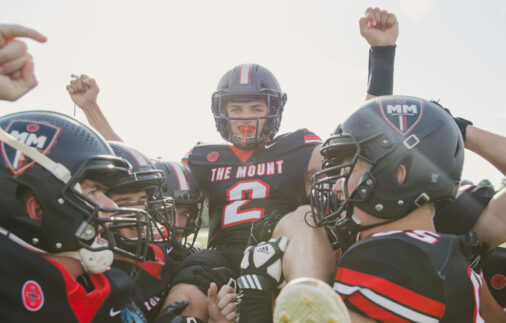
-
Advancement
Advancement
Under this tab you will find links to Mount Michael giving opportunities as well as information about fundraising events.
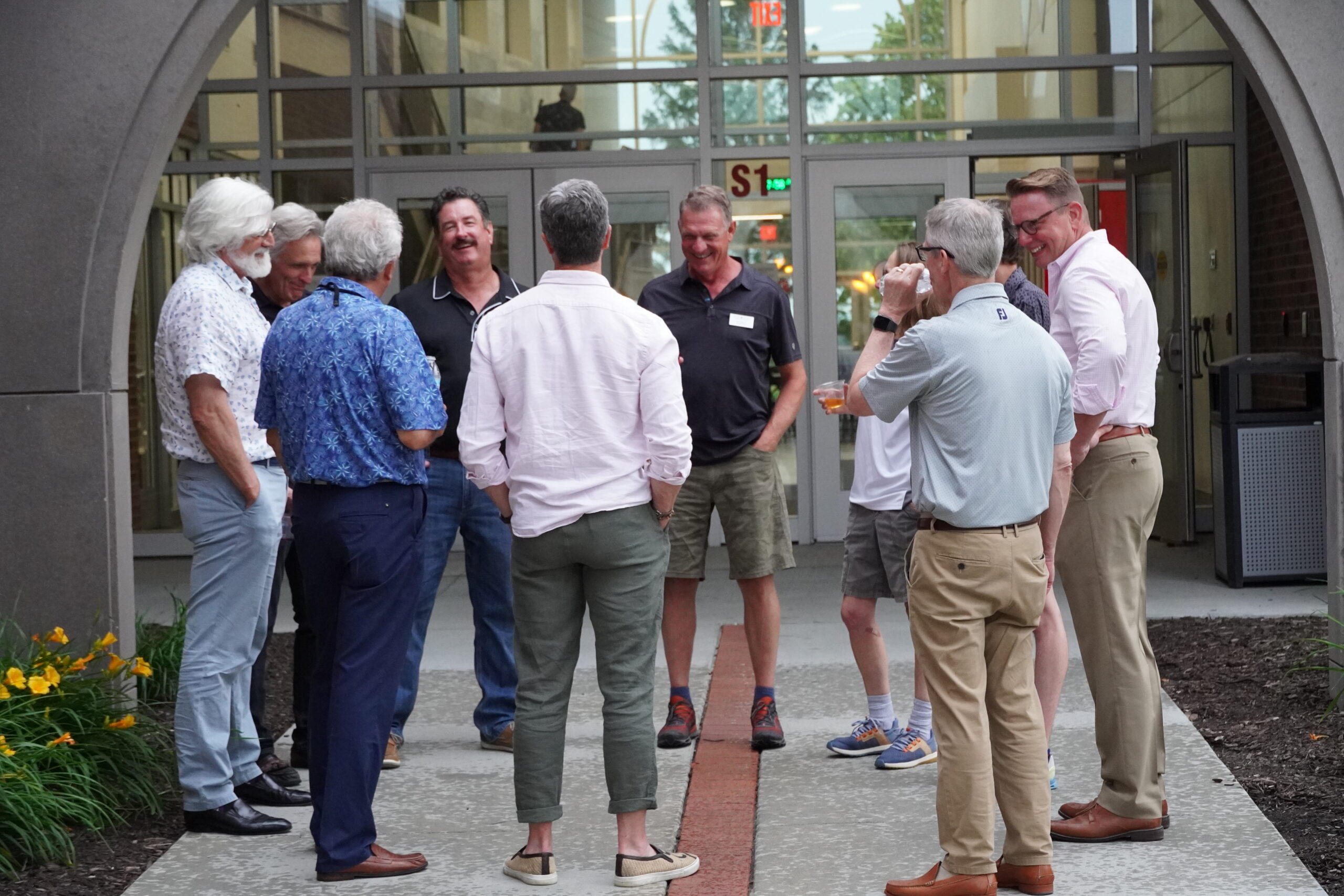
Engineering & Technology

Engineering & Technology
One semester of Computer Science is required for sophomores. Other classes are offered as electives. Expand the bars below for a full description of each Engineering & Technology course and the credit hours.
This course is one semester long. It focuses on how computers work. Seventy five percent of the course focuses on coding literacy using different languages such as JavaScript and Python. The rest of the course covers other fundamentals including hardware and software, networking, digital logic, and building literacy in coding. All sophomores are required to take this course.
1 semester; 5 credit hours
AP Computer Science Principles is an introductory college-level computing course that introduces students to the breadth of the field of computer science. Students learn to design and evaluate solutions and to apply computer science to solve problems through the development of algorithms and programs. They incorporate abstraction into programs and use data to discover new knowledge. Students also explain how computing innovations and computing systems—including the internet, explore their potential impacts, and contribute to a computing culture that is collaborative and ethical.
Full year; 10 credit hours
AP Computer Science A is an introductory college-level computer science course. Students cultivate their understanding of coding through analyzing, writing, and testing code as they explore concepts like modularity, variables, and control structures. Students expand their programming skills by developing solutions in the Java programming language, building on the knowledge they acquired from their previous introductory computer science course.
Full year; 10 credit hours
This course is an introductory course in two- and three-dimensional drafting, isometric sketching and projections, computer-aided drafting, construction estimating, residential engineering, and model building. Students will have the opportunity to use the Autodesk program AutoCAD and use multiple materials to represent different construction methods. This course is recommended for anyone interested in the areas of Architecture, Engineering, Interior Design and/or Construction.
Full year; 10 credit hours
This is an architectural and engineering course considering both past and present types of construction. The student will have an opportunity to use the Autodesk program Revit for some assignments. The students will explore multiple design styles, engineering calculations and construction methods using math, science and engineering practices.
Full year; 10 credit hours
Prerequisite: Architecture and Engineering. Recommended B or better in all Math Courses
Through individual and collaborative team activities, projects and problems, students will learn important aspects of a commercial building along with site design and development. They will build upon their math, science, engineering calculations and technical representation skills from Residential Engineering to design a functional commercial project while documenting and communicating their ideas through Revit.
Full year; 10 credit hours
Prerequisite: Honors Residential Architecture & Engineering. Recommended B or better in all Math Courses
The capstone course in the Architecture and Engineering program combines all previously learned information and explores how to address problems from a professional perspective Students will identify and document a problem, then research, design, and test possible solutions to the problem. Students also have the option to explore further into construction practices identified in the Residential and Commercial courses.
Full year; 10 credit hours
Prerequisite: Honors Commercial Architecture & Engineering. Recommended B or better in all Math Courses.
This course is designed to introduce students to Robotics. Students will work as a team to design and implement a robotic solution to a given problem using the engineering design process. Students will be instructed on multiple methods for creating several different robotic subsystems including object manipulation, lift, and drivetrain as well as basic programming structures in the C language. This class meets 2 days per week in the evenings.
Full year; 4 credit hours.
Students will participate as a team in the Vex Robotics Challenge competitions. Students will use the engineering design process to design and implement a robotic solution to the given problem for the purpose of robotics competitions. Students will be exposed to advanced drivetrain, lift, and object manipulation subsystems as well as advanced programming techniques to produce a competition-level robot. Students will be given significantly more autonomy than the Introduction to Robotics students. To be successful in Advanced Robotics, students will need to dedicate a significant portion of time (approximately 400-500 hours throughout the school year). This class meets 3 days per week in the evenings, plus required competition days.
Full year, 6 credit hours

